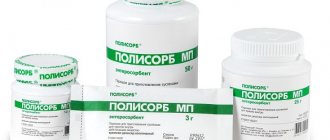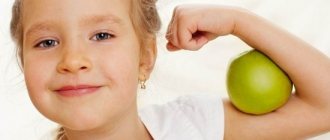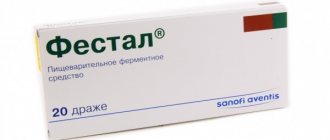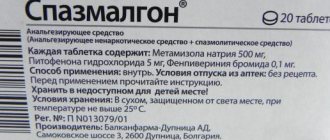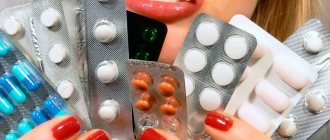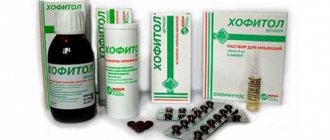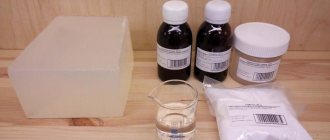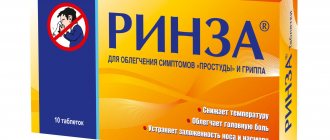"Caffeine" instructions for use
- The main active ingredient of this medicine is caffeine of the same name, which has an analeptic and psychostimulating effect. This substance has an active effect on the central nervous system, its main effect is directed on the cerebral cortex, and has an effect on the vascular centers and respiratory centers
- Caffeine can increase physical activity and performance and mental activity, reduces the effects of substances that have the ability to reduce the activity of the central nervous system
- The effect on the cardiovascular system is exerted by increasing the rhythm of heart contractions and their strength, while reducing blood pressure, caffeine corrects hypotensive conditions. The drug is able to act as a diuretic with moderate intensity and stimulates the functioning of the glandular apparatus of the stomach
Mechanism of action
Caffeine eliminates the effect of adenosine, special molecules that are the connecting link between neurons in the brain. They cause a feeling of fatigue, which protects the body from mental and physical stress.
However, in some cases, a person needs to remain alert and continue to be active. Then caffeine comes to the rescue. It does not relieve overwork, but only masks the symptoms. A person has the illusion of a surge of strength.
Over time, one becomes accustomed to additional stimulation, and an increase in the dose of the substance is required to achieve the desired effect. While caffeine is released, the body's fatigue increases even more because the body did not rest, but continued to work in an intense mode.
Both coffee and tea have an invigorating effect. They contain chemically identical substances that differ only in the way they are released. Caffeine begins to work as soon as it enters the stomach, and “chain” only begins to work in the intestines.
Therefore, a person sees the results of coffee almost immediately. “Chain” needs more time to activate, but the effect of its use lasts for a much longer time.
"Caffeine" indications for use
The conditions in which taking the drug “caffeine” is indicated are: • Decreased physical activity and the ability to work actively • Decreased mental activity and performance • Spastic state of cerebral vessels • Drowsiness • Diseases that are accompanied by a decrease in the activity of the central nervous system • Diseases accompanied by depression of the respiratory centers and centers cardiovascular system • Poisoning with opioid analgesics • Infectious diseases (to improve general condition)
"Caffeine-sodium benzoate" for weight loss
Particularly enterprising people, knowing the ability of caffeine (to invigorate and dilate blood vessels, thereby increasing the supply of oxygen to the organs), decided to use the drug in question as a fat burner. In fact, if we compare it with sports analogues, then this option will be even safer. Sports fat burners use caffeine and geranamine, which in tandem can cause a stroke by stimulating the cardiovascular and nervous systems twice as much as just a pharmaceutical drug. In addition, the mentioned analogues are more expensive. And the drug "Caffeine-sodium benzoate" is inexpensive, and at the same time the risk is lower. But again, it becomes addictive in a fairly short period of time. If a person taking this drug becomes irritable without it, walks around constantly sleepy and cannot fall asleep at night, experiences headaches and feels tremors in the hands, then this means that addiction is already taking place. And the stronger the symptoms, the greater the addiction. Therefore, before taking this drug, consult your doctor, as the side effects are quite serious, and the consequences of taking it can be very unpredictable.
"Caffeine" dosage
The dose for different forms of release and for different diseases varies:
• For the injection route of administration, subcutaneous administration is recommended for adults from 100 to 200 mg 2 or 3 times a day (or 1 ml of 10-20% solution), and for children from 25 to 100 mg 2 or 3 times a day (0.25-1 ml of 10% solution) • For the tablet form, the doses are as follows: adults from 50 to 100 mg 3 times a day, children the average dose is recommended 30 or 75 mg 3 times a day day. • When indicated in ophthalmology, a 10% solution of 0.3 ml is administered subconjunctivally once a day. It is not recommended to take the drug before bedtime.
Safe dose
Depending on the dosage of caffeine, we can say whether it will benefit or harm the body.
A dose of 250-300 mg per day is considered safe. This is approximately 3-4 cups of espresso. If side effects occur, the daily intake of the substance should be gradually reduced.
If a person takes medications, then it is worth consulting with a specialist first, since many drugs react with this substance.
The effect of caffeine on the body depends almost entirely on its dosage. 1-2 cups of caffeinated drinks will only do you good. An overdose will have the opposite effect - it will cause an exacerbation of diseases and a deterioration in well-being.
Caffeine interaction with other medications.
Caffeine potentiates (increases the effect) the effect of many drugs: • Barbiturates • Anticonvulsants • Pyramidon
Ciprofloxacin and nofloxacin, oral contraceptives, cementedin reduce the absorption of caffeine and its processing by the liver.
When drinking drinks containing an additional dose of caffeine, high stimulation of the central nervous system can occur. The drug "Mexiletine" reduces the process of removing the drug from the body, while nicotine, on the contrary, promotes the rapid elimination of the drug.
When consuming caffeine, calcium medications may not be absorbed into the gastrointestinal tract.
Caffeine is an antagonist of the drug adenosine, and therefore is an “antidote” for its overdose.
Harm and contraindications
The harm of caffeine depends on the dosage and the condition of the body. If a person is healthy, then the substance will only have a positive effect. It will also help get rid of some problems. But if you abuse caffeine-containing products, negative consequences will not keep you waiting.
It's no secret that this substance is addictive. It stimulates the release of the hormone dopamine and suppresses fatigue. Therefore, abruptly stopping caffeine consumption can cause withdrawal symptoms.
Many people feel nervous and tired in the morning until they drink their treasured cup of coffee. This is a manifestation of the so-called “coffee mania.” To get rid of this addiction, you need to gradually reduce the dosage.
So why is caffeine harmful?
- It reduces the absorption of calcium in the body. Due to frequent consumption of caffeinated drinks, the acid-base balance in the stomach is disturbed. The degree of absorption of nutrients decreases, so the body is forced to compensate for the lack of calcium by borrowing it from the bones. Over time, this can lead to osteoporosis (brittle bones).
- Due to the strong diuretic effect, dehydration occurs.
- strong stimulation of the nervous system causes sleep disturbance and increases irritability.
- in large doses it causes surges in blood and eye pressure, which is especially dangerous for older people.
- Contraindicated for diseases of the cardiovascular system. It has a particularly depressing effect in combination with alcohol and cigarettes.
- Due to the constant stimulation of gastric secretion, problems with the gastrointestinal tract arise, and people with high acidity should not use it at all.
- Constriction of blood vessels in the brain leads to insufficient blood flow, which contributes to early aging.
- Excessive caffeine consumption by men harms their sexual health and potency. A decrease in erection occurs due to the action of plant estrogens, a small amount of which does not pose any danger.
You should be careful when consuming caffeine-containing products during pregnancy, because their effects also affect the baby. The fetus's heart rate and metabolism increase, which can negatively affect its health.
Some time ago it was believed that caffeine provokes the development of cancer. But modern research has refuted this information.
Thus, a large concentration of this substance has a depressing effect on the body. Only moderate consumption will help you avoid negative consequences and benefit.
Overdose
Large amounts of caffeine have a negative impact on physical health and can even be fatal. People with cardiovascular diseases and high blood pressure should be especially careful.
It is believed that 10 g of this substance is a lethal dose. You can get it by drinking 70 cups of coffee in a row. However, people suffering from “coffee addiction” receive about a tenth of this amount.
Symptoms of the negative effects of caffeine on the body:
- arrhythmia,
- strong increase in pressure,
- irritability,
- insomnia
- increased excitability.
"Caffeine" reviews
The positive fact of this product is its availability and high efficiency. It helps a lot with low blood pressure and has a lot of positive feedback.
The only minor side effects from taking the drug are nausea, and insomnia if taken incorrectly before bed.
When the drug is taken correctly in the prescribed doses, it has an excellent stimulating effect on the body as a whole and on performance, which is no less important. “Caffeine” analogues • Caffeine anhydrous • Caffeine-sodium benzoate • Dia-Activanad-N
Action on the cardiovascular system
The vasomotor system is stimulated, but at the same time the walls of the vessels relax, which leads to a logical continuation of the processes. Among these are the subsequent reactions of individual organs: dilation of blood vessels in the kidneys, skeletal muscles, heart, greater blood flow and saturation of cells with oxygen. But the cerebral arteries experience increased tone, that is, the vessels located in the brain narrow, thereby reducing cerebral blood flow and oxygen pressure. As a result of taking the drug "Caffeine-sodium benzoate", blood pressure also changes, which in the normal initial version may increase, and with arterial hypotension it normalizes. In addition, the medication has an antispasmodic effect on smooth muscles, but a more stimulating effect on striated muscles. The secretory activity of the gastrointestinal tract and renal filtration increase, histamine is released from mast cells, and basal metabolism increases.
Why is caffeine harmful?
Side effects
From the side of the central nervous system:
- restlessness, agitation, anxiety;
- uncontrollable sudden changes in mood, tendency to irritability and tearfulness, nervousness, causeless aggression;
- hand trembling;
- insomnia, sleep disorders;
- the opposite effect may be observed: drowsiness, slow reactions, lethargy, decreased performance;
- addiction and further dependence.
From the SSS side:
- increased blood pressure;
- headache localized in the temples;
- arrhythmia;
- tachycardia.
From the gastrointestinal tract:
- vomit;
- nausea;
- diarrhea;
- epigastric pain;
- exacerbation of the ulcer.
Side effects occur when caffeine-containing products are consumed incorrectly:
- too large a one-time dosage (they poured not a small cup of high-quality black coffee, but a huge half-liter mug from which they are used to drinking tea);
- use on an empty stomach (strictly prohibited);
- exceeding the daily dosage;
- ignoring contraindications and other recommendations set out in the instructions;
- You react too sensitively to taking any psychostimulants.
It often happens that people don’t even suspect that they themselves are increasing the dosage of caffeine consumed: in the morning - a cup of coffee (even the smallest one), for a snack - a couple of shares of chocolate, for lunch - hot chocolate, before training - an energy drink, in the evening - tea. So a significant amount of a psychostimulant alkaloid is collected per day, which gradually accumulates in the body. And if at first this is fraught with isolated, unsystematic side effects described above, then after some time it can result in an overdose and other sad consequences.
Caffeine overdose
Symptoms of caffeine overdose:
- excitement, restlessness, anxiety;
- erratic, uncontrolled motor skills, tremors;
- increased sensitivity to pain, light, loud sounds;
- seizures similar to epileptic;
- ocular and headache migraine, tinnitus;
- confusion, possible delirium;
- insomnia;
- rapid heartbeat, extrasystole;
- enuresis;
- hyperthermia, dehydration;
- vomiting (may be with blood), nausea.
Therapeutic measures:
- hyperbaric oxygenation - saturating the body with oxygen under high pressure;
- hemodialysis - blood purification;
- drug treatment: Diazepam, Phenytoin, Phenobarbital (injection solutions for intravenous administration).
At the first symptoms of an overdose, you should immediately call an ambulance or take the victim to the hospital yourself.
Consequences
If a person exceeds the permissible daily intake of caffeine day after day or consumes it continuously and in large quantities for several years (even within the recommended limits), this can result in health complications. And some of them may be irreversible.
Theism (caffeineism)
Mental dependence on caffeine-containing products. At first it manifests itself in the form of nervousness, irritability, anxiety, tremor, hyperreflexia, sleep disturbances, migraines, respiratory alkalosis, tachycardia. Within a few months it leads to serious stomach problems: ulcers, erosive esophagitis, inflammation of the esophagus.
Nervous exhaustion
Too frequent stimulation of the central nervous system leads to its depletion. It manifests itself as continuous weakness, fatigue, short temper, severe irritation, social maladaptation, auto-aggression, insomnia, and a feeling of weakness. From the somatic side, pain syndromes of different origins are diagnosed: myalgia, gastralgia, migraine-like pain, neuralgia. In everyday life, a person becomes forgetful, passive, cannot concentrate, and loses appetite.
Mental disorders:
- psychosis in healthy people, intensification of existing psychosis in schizophrenia;
- delirium: vivid visual and auditory hallucinations, disorientation in space, dilated pupils, hyperemia, muscle weakness, increased heart rate, increased pressure and body temperature;
- deep stupefaction of consciousness followed by complete amnesia and the development of twilight stupefaction;
- hallucinosis;
- hypomanic state and other affective psychoses.
You should not treat these facts only as “horror stories” that will definitely not affect you. A similar case was recently recorded in medical practice. An elderly woman was admitted to the hospital with psychosis, visual hallucinations, spatial disorientation, and in a state of complete euphoria. It turned out that in the last 2 years she was a real coffee lover and drank 300 ml of coffee daily. The studies carried out confirmed that it was this fact that caused this condition. The worst thing is that the doctors could not help her, she died.
Therefore, it is so important to be extremely careful when taking caffeine in any form. No matter how much you love coffee with chocolate, no matter how effective you consider sports dietary supplements based on it, the main thing is to observe moderation in consumption and not exceed the recommended dosages. Only in this case will it do more good than harm.
Side effects
Overdose or individual intolerance can lead to a number of side effects:
- digestive system: exacerbation of ulcers, gag reflexes, severe nausea;
- Central nervous system: severe agitation, the appearance of unreasonable tremors, dizziness, migraines, insomnia. In case of abrupt withdrawal from the drug, drowsiness, increased muscle tension, and inhibition of the central nervous system may occur;
- cardiovascular system: increased blood pressure, increased heart rate, arrhythmia.
In addition, reviews also confirm the presence of side effects such as nasal congestion and addiction (that is, after a while the body may not react at all to the new component).
In case of overdose, act quickly. The first thing to do is urgent gastric lavage, the second thing is to take activated charcoal. Remember that when the first dangerous symptoms appear, it is better to call a doctor.
Additional recommendations
Compatibility
Caffeine when combined:
- with sleeping pills (bellataminal, hexobarbital, doxylamine, clomethiazole, nitrazepam) and anesthesia drugs (sodium thiopental, ketamine, fentanyl, relanium) reduces their effectiveness;
- with analgesics-antipyretics (analgin, paracetamol, ibuprofen, piroxicam) enhances their medicinal effect;
- with estrogens (ovestin, dermestril, microgynon, most contraceptives) increases the duration of its own action;
- with adenosine (antiarrhythmic, metabolic medicine) reduces the number of heart contractions, reduces vasodilation;
- with aspirin increases the rate of its absorption;
- with mexiletine (an antiarrhythmic drug) cannot be absorbed by the liver - its concentration in the blood increases to the point of intoxication and overdose;
- with phenytoin (an antiepileptic drug) it is eliminated from the body faster;
- with terbinafine, ketoconazole, fluconazole increases its own concentration in the blood.
Caffeine withdrawal
If there is a need to give up caffeine-containing products, this should be done with extreme caution, otherwise it can harm your health. If, for example, you have been drinking 5 cups of coffee a day for several years, and the next day you stop drinking it completely, you will experience symptoms similar to an overdose of this alkaloid. To prevent this from happening, follow the step-by-step instructions on how to do it correctly:
- Review the list of caffeinated foods and drinks. Determine which ones you use regularly.
- Gradually remove one of them from your diet at a time. For example, give up energy drinks this week and chocolate next week.
- When, in addition to coffee, there are no more caffeine-containing foods and drinks left on the menu, give up 1 cup. Replace it with green tea or a protein shake.
- It should take 2 weeks to give up each cup of coffee.
There is another refusal scheme: gradually replace coffee with a drink made from chicory, which has a mild invigorating effect, is healthier, and most importantly, it does not contain an alkaloid.
Harm of caffeine
Physiological or small doses of caffeine will not cause any harm to a person. But if you significantly exceed the permissible dose, caffeine-containing drinks are not beneficial to a person. More than once, ambulances brought people to the hospital who drank a lot of coffee or other drinks containing this alkaloid.
insomnia
When caffeine poisoning occurs, a person is concerned about:
- depression of the nervous system instead of stimulating it - the victim is in a sleepy or depressed state, which resembles depression;
- maybe nausea and vomiting;
- the person has insomnia and is also bothered by a feeling of anxiety or fear;
- caffeine poisoning causes deterioration in breathing, rapid heartbeat, irregular heart rhythm and, as a result, chest pain;
- blood pressure rises sharply;
- possibly an increase in body temperature;
- in case of severe poisoning, if you take a large dose of caffeine, which is more than one gram, severe agitation appears;
- a person develops delusional ideas;
- An overdose of caffeine is dangerous due to the occurrence of seizures and muscle twitching.
In addition to the symptoms of human poisoning, there is another dangerous point in using drugs and products with this alkaloid - the gradual formation of caffeine addiction. Does such a problem really exist or are these just fairy tales that doctors tell us to reduce the amount of drinks consumed? Perhaps this is just another myth that frightens people, thanks to which health professionals want to rid us of other side effects associated with caffeine consumption?
Formation of addiction
It turns out that for many people a morning cup of coffee is not a daily repeating ritual to quickly get rid of a sleepy state, but a variant of addiction. Caffeine is part of a group of alkaloids that stimulate the nervous system. With constant use, caffeine turns into a drug. Although the dependence is not so strong, it still exists.
The fact is that drinks stimulate the nervous system for only a short period of time. After coffee or tea, your mood improves, fatigue is relieved, your heart rate increases, some processes occur due to the release of dopamine. But these effects do not last long - a good mood under the influence of drugs containing caffeine lasts no more than an hour. Wakefulness and improvement in mental activity disappear after 3 hours. Long-term users experience caffeine withdrawal after this time. The person again drinks another portion of the stimulating liquid to recharge for some more time. A temporary feeling of comfort makes you drink another cup. But there are other cases - for people who work at night, coffee or strong tea saves them from the desire to take a nap at work. Only drinks have to be consumed frequently so that the effect is not lost.
More often, caffeine addiction develops in people with a weak nervous system. Caffeine does not replace the production of your own hormones or other essential substances. In people who rarely drink drinks with this alkaloid, such a dependence (it is called theism) does not form.
Who should choose what?
First, decide what effect you want to achieve in order to choose a product to achieve your goal.
If you are melancholic
Melancholic people are distinguished by a weak, unbalanced, inert type of higher nervous activity, which is characterized by slow processes of excitation and inhibition, poor ability to adapt to environmental conditions and frequent neurotic disorders.
In such a situation, drugs and products containing caffeine in large quantities are contraindicated. Therefore, to get a boost of energy, they can be content with only weak tea, and occasionally chocolate. You can also try (with caution, monitoring your well-being) dietary supplements for weight loss, since their psychostimulating effect is weakly expressed. If you love coffee, then it is better to choose brands that produce this product without caffeine.
If you are actively involved in sports
It doesn’t matter if you’re a professional bodybuilder or just go to Zumba to lose weight, if you exercise regularly, you can try sports nutrition. Look for pre-workout energy supplements that contain caffeine. There is no shortage of such supplements on the modern market. At the same time, monitor whether you exceed the recommended daily dosage, taking into account not only the capsules or powder that you take, but also those caffeine-containing products that you eat (drink) during the day.
If you are losing weight
For those who want to lose weight, there is a wide range of ways to do this with the help of caffeine:
- special supplements like green or regular coffee for weight loss (Leovit, Turboslim);
- fasting days and diets: cocoa, chocolate, coffee, energy drinks;
- coffee and chocolate wraps - done at home (the paste can be prepared with your own hands or purchased ready-made) or sign up for the corresponding procedure in a salon;
- cosmetics (creams, gels) for cellulite with coffee or chocolate.
If you don't have enough energy
If you have a busy work schedule, a session, urgent submission of documents, inspections - situations that require high concentration of attention, creating increased mental and physical stress, you need to consume the recommended daily dose of caffeine through products that contain it.
If the situation is so critical that lethargy and the eternal desire to sleep prevent you from coping with the assigned tasks, it makes sense to consult a therapist or endocrinologist. Caffeine-containing medications prescribed by a doctor will definitely help.
Decaffeinated coffee
There are people who should not consume caffeinated foods and drinks for health reasons. There are those who deliberately refuse them, believing that they do more harm than good. They can recommend decaffeinated coffee. Its demand in the modern market is quite high, so many brands began to produce similar products.
How to make decaffeinated coffee
Decaffeination is the process of extracting caffeine from beans. It is carried out in several ways.
Swiss method
One of the most effective, as it allows you to reduce the caffeine content to 0.1%. Process steps:
- The fruits of the coffee tree are soaked in water for several hours so that the alkaloids and aromatic oils are released into the liquid.
- It is passed through filters that retain caffeine.
- Already cleaned, it is returned to the fruits.
- The process is repeated.
Coffee obtained this way is one of the most expensive.
Direct (traditional, European) method
Process steps:
- The fruits of the coffee tree are soaked in hot water.
- They are immersed in a solvent that breaks down the alkaloid.
- Rinse thoroughly in boiling water.
- Drying.
Harmful chemical compounds get into the fruit from the solvent.
Indirect method
A fairly effective method, similar to the previous one, but preserving the beneficial properties of coffee fruits. The difference is that a higher quality solvent is used for soaking, and all stages are repeated several times. The result is the aroma, taste, vitamins, oils remain - only the alkaloid is extracted. The final product is high quality, but expensive.
CO2 extraction
Carbon dioxide method. Production stages:
- The fruits are steamed.
- They are placed under pressure in a chamber with carbon dioxide, which extracts only caffeine from them, leaving the oils untouched, which preserves the specific taste and aroma of the drink.
Many people do not trust this method, believing that carbon dioxide still has a negative effect on the composition of the grains. However, numerous studies have not shown the presence of any impurities in such coffee.
Decaffeinated coffee brands
In grains:
- Amado (Russia).
- Hausbrandt Decaffeinato (Italy).
- Illy Decaf (Italy).
- Julius Meinl (Austria).
- Lavazza Dec (Italy).
Ground:
- Cafe Altura (USA).
- Dallmayr (Germany).
- Illycaffe (Italy).
- Lavazza Dec (Italy).
- Lucaffe (Italy).
Soluble:
- Ambassador Platinum Decaf (Switzerland).
- Carte Noire Decafeine (England).
- Jacobs Monarch Decaf (Germany).
- Nescafe Gold Decaf (Switzerland).
- Tchibo Exclusive Decaf (Germany).
Myths
- Decaf coffee is made from chicory, barley or genetically modified varieties.
- It does not retain its specific taste and aroma.
- The solvents in which coffee beans are soaked are harmful and lead to the development of various diseases, including cancer.
- It has no caffeine at all.
All this is nothing more than fiction. Decaf coffee:
- Made from natural coffee fruits.
- It retains its taste and aroma.
- Solvents are not so harmful if you do not drink this drink a liter a day.
- On average, the caffeine content in such coffee is 0.1-0.5%. In cheap varieties this figure can reach up to 5%.
Despite this, those who decide to switch to decaffeinated coffee should be aware of its two significant disadvantages. Firstly, its invigorating effect is several times inferior to its usual counterpart. Secondly, it has a more aggressive effect on the digestive tract, stimulating the production of too much gastric juice, which can result in heartburn, and is also dangerous for gastritis and ulcers.
Overdose
Each cup of tea or coffee, depending on the type and amount of dry matter, contains from 30 to 100 mg of caffeine. Several cups of drink a day is a real step towards intoxication.
How harmful is caffeine in amounts greater than one gram? — it will lead to pronounced symptoms of overdose in the body:
- redness of the skin and a sharp increase in temperature;
- delusions and hallucinations;
- almost all types of heart rhythm disturbances;
- if assistance is not provided to a person, coma and collapse may occur;
- death occurs from paralysis of the respiratory center and pulmonary edema secondary to coma.
But all these symptoms may not appear if a large dose of an alkaloid is simultaneously introduced into the human body. The lethal dose of caffeine is 10 grams or more. This happens when the injection forms of the drug are administered by mistake or when consuming a large amount of products containing an alkaloid.
Help with poisoning
In case of caffeine poisoning, you need to act immediately. In this case, you should not wait for all the symptoms to resolve on your own, because the drug in large quantities has a depressing effect on the nervous system, and makes the heart beat at an incorrect frequency, which is dangerous due to numerous complications that are subsequently incurable.
Caffeine overdose can occur when drinking large amounts of strong coffee or after abusing medications used for headaches.
How can you help a victim if you suspect a caffeine overdose?
- In mild cases, it is enough to rinse the stomach, give a saline laxative to drink and use a sorbent, which is most often activated carbon.
- If convulsions, nausea and vomiting occur, assistance should be provided by an ambulance team or hospital doctors, because ordinary people do not have special drugs in their arsenal to alleviate the condition.
- Anticonvulsants are used: Seduxen, Relanium.
- To relieve agitation, antipsychotics are used in therapeutic doses.
- How to remove caffeine from the body? The substance is very quickly absorbed and converted in the liver. Therefore, if several hours have passed since the consumption of the alkaloid, it is no longer possible to remove and bind it with certain medications. There is no antidote for caffeine. But with the development of severe conditions, such as collapse, intravenous solutions of glucose with insulin or plasma substitutes are prescribed.
- In the hospital, symptomatic medications are prescribed, which include Panangin, vitamins and heart-supporting medications.
- Depending on the indications, cardiac defibrillation is performed in emergency cases.
Is caffeine harmful or beneficial? He cannot be classified as one or the other. In normal quantities, if not abused, then it is useful to a person, and sometimes even necessary. But an extra amount will never bring the desired result, you need to be careful with it!
History of the discovery of caffeine
Friedlieb Ferdinand Runge first isolated relatively pure caffeine in 1819 and named it “Kaffebase” (that is, the base existing in coffee). Runge was a German chemist. He isolated caffeine following the instructions of Johann Wolfgang von Goethe.
According to the notes of the Swedish chemist Jons Jacob Berzelius, caffeine was isolated simultaneously in 1821 by three French chemists, Pierre Jean Robiquet, and a pair of chemists, Pierre-Joseph Pelletier and Joseph Bienaime Caventou. Berzelius also stated that French chemists made their discoveries independently of Runge and each other. However, he later acknowledged Runge's priority in the matter of caffeine extraction, stating: "However, at this point, Runge described the same method and named caffeine Caffeebase a year earlier than Robicke, who is usually credited with the discovery of this substance, since he made the first public statement of this discovery at a meeting of the Medical Society in Paris." The first time the term "caffeine" was used in print was in an article written by Pelletier. This is confirmed by Berzelius's note:
“Caffeine, noun (feminine, meaning Caffebase). A crystallizing substance discovered in coffee beans in 1821 by Mr. Robiquet. At the same time, while searching for quinine in coffee beans (since they were considered by several doctors to have antipyretic properties, and were therefore considered to belong to the same family as the quinine tree [quinine]), Messrs. Pelletier and Caventou discovered caffeine; but, as their research had a different purpose and was not ultimately completed, they left priority on the matter to M. Robique. It is not known why M. Robiquet did not publish the analysis of coffee beans that he read in the Medical Society."
It is important, however, that Robiquet was one of the first scientists to isolate and describe the properties of pure caffeine, and Pelletier was the first to perform elemental analysis of coffee. Caffeine from tea was isolated in 1827 by M. Audry. He called the substance "theine", but Gerrit Jan Mulder (or Mulder) and Karl Jobst (or Jobst) later proved that it was in fact caffeine.
The first person who managed to obtain caffeine artificially was Hermann Emil Fischer. A German chemist first synthesized caffeine from raw materials in 1895 (that is, carried out a “total synthesis”), and two years later he also derived the structural formula of the compound. Fischer was awarded the Nobel Prize in 1902, partly for these services.
Special instructions for patients
During pregnancy and lactation, you should use Caffeine-Sodium Benzonate with caution and only with the permission of a doctor. You also need to know that the drug helps wash calcium out of the blood, so it is necessary to control that this substance enters the body with other products, for example, cottage cheese.
You should not consume caffeine or substances containing it for a long time - this can cause addiction. In this case, if caffeine does not enter the bloodstream, withdrawal symptoms will begin. It can be presented by headache, cramps, depression, irritability, loss of strength. These symptoms will disappear approximately one and a half to two weeks after discontinuation of the drug.
Proper use of the drink
To be able to enjoy your favorite drink, which not only brings you a boost of energy, but also lifts your spirits, you should adhere to the rules of healthy coffee drinking. Thanks to the noted rules, you can avoid the negative and harmful consequences that can be caused by excess coffee in the body.
It is not recommended to drink coffee on an empty stomach
The main ones are:
- It is not recommended to drink coffee on an empty stomach. It is best to drink this drink after a meal or 1.5 hours after a meal.
- If the drink is supposed to be drunk immediately after a meal, then it is not advisable to use sweets with it. You can treat yourself to a dessert while drinking coffee only 1.5 times after eating.
- If a person has problems with the cardiovascular, nervous or digestive systems, it is best to first consult with a doctor regarding use or dosage.
- It would be undesirable to take the drink immediately before bed, as this can provoke excessive arousal and, accordingly, you can forget about sleep. Because the process of falling asleep will become very difficult.
- It should also be noted that only natural beans contain beneficial properties, but instant coffee, if consumed on an empty stomach, can cause the development of gastritis.
- It is highly not recommended to drink instant coffee in combination with a cigarette, as this increases cholesterol levels.
In conclusion, it is imperative to note that many coffee lovers drink a fairly strong drink every day, and regular use of it causes the body to become accustomed to a certain dosage. This, in turn, reduces the body's sensitivity to caffeine effects, which leads to the fact that a person can drink an invigorating drink much more than the permissible limit per day, which is 5-6 cups.
pharmachologic effect
Tablets for increasing blood pressure with caffeine have a complex effect on the body:
- stimulate brain function;
- improve reflex activity;
- speed up the heartbeat and breathing rate;
- stimulates mental activity and physical activity.
You cannot choose tablets for low blood pressure on your own; you must contact a specialist who will prescribe tests and diagnostic procedures
The active components of the drug affect the functioning of the heart and blood vessels, which increases blood pressure (BP). The enzyme in ampoules relieves physical fatigue and drowsiness. Caffeine capsules are used to increase concentration.
What it is
It is well known that caffeine is the main component of coffee, tea, chocolate, cocoa and energy drinks, which provides their invigorating effect. Scientifically speaking, it is a purine alkaloid, which is a powerful natural psychostimulant. The chemical name is 1,3,7-trimethylxanthine. Other names: guaranine, theine, mateine.
It is of plant origin, found in the fruits of coffee, chocolate (cocoa) trees and cola (mallow plant), leaves of Paraguayan holly (mate), tea, and guarana seeds.
It is not synthesized by the human body and enters it with food. Most often, invigorating drinks are produced based on it. In medicine it is used as a psychostimulant, cardiotonic and analeptic. In sports nutrition - as an energy drink, in dietetics it is part of fat-burning dietary supplements for weight loss.
It dissolves poorly in cold water and alcohol, but dissolves quickly in hot water.
Chemical formula of caffeine: C8H10N4O2.
Structural formula:
Caffeine molecule:
This is interesting. Plants produce this alkaloid in order to protect themselves from insects that eat them, as it gives them a bitter taste. And at the same time, its smell attracts the same insects, but for pollination.
Where is caffeine found?
Caffeine is the most common substance in the world. It is especially popular as stimulating drinks - coffee, tea and a variety of energy drinks. Caffeine is present not only in coffee, but also in tablets of the same name, many foods, drinks and medicines.
So, here is the caffeine content data:
- Brewed coffee (95-125 mg per cup).
- Instant coffee (60-70 mg per cup).
- Black tea (30-70 mg per mug).
- Green tea (25-50 mg per mug).
- Pepsi and Coca-Cola (30-45 mg per 100 g).
- Cocoa (10-18 mg per glass).
- Bittersweet (60 mg per 100 g) and some types of milk chocolate (20 mg per 100 g).
- Energy drinks (30-80 mg per 250 ml).
- Contained in cola nuts and guarana fruits.
- Found in some medications.
It is worth considering that the amount of caffeine depends on the type and method of preparing coffee and tea.

